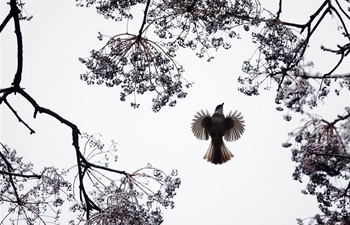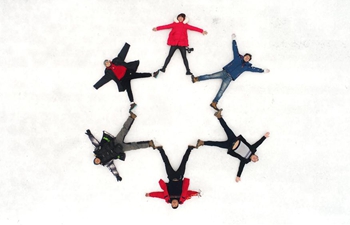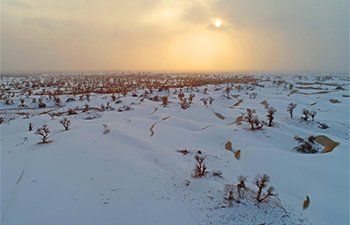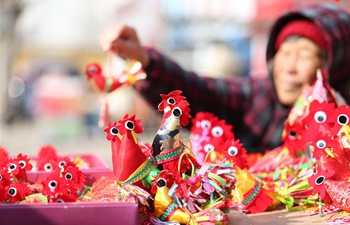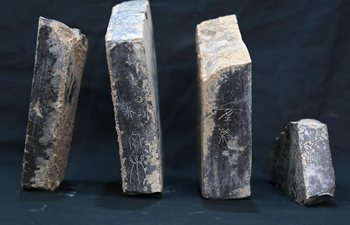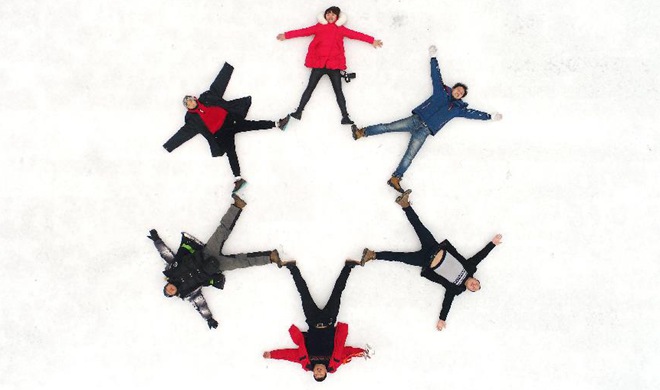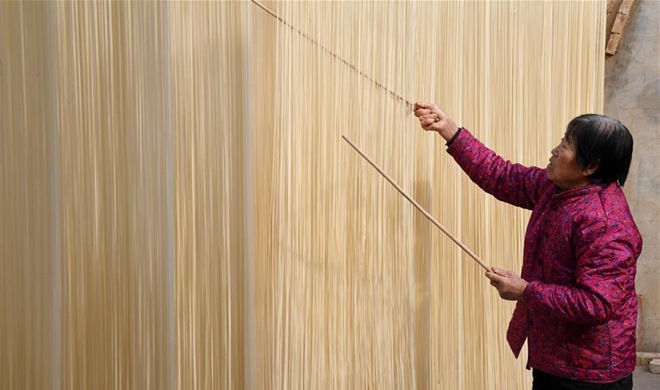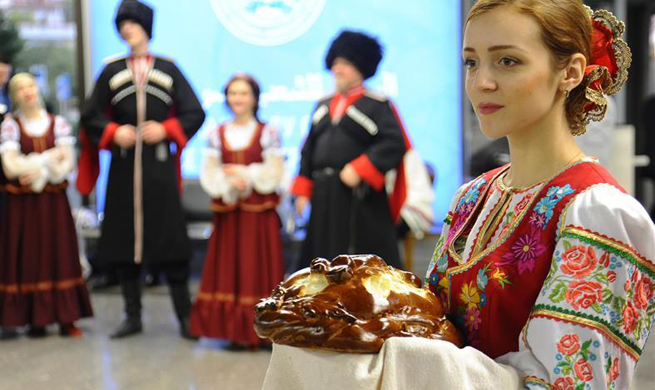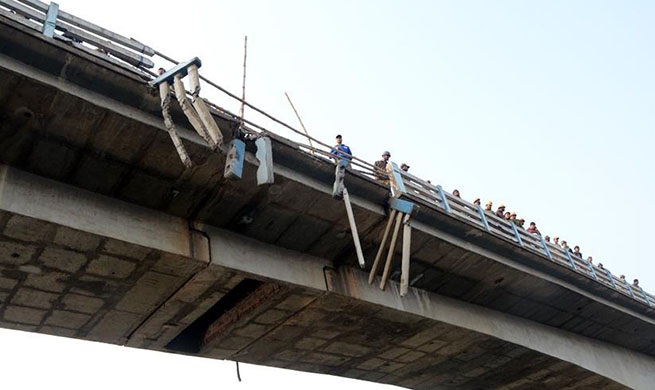BRUSSELS, Jan. 30 (Xinhua) -- Xia Wujiao, a master artist of the UNESCO-listed intangible cultural heritage Regong arts, has joined a two-day exhibition here to promote scenery and diverse ethnic culture in west China's Qinghai, a province on the Qinghai-Tibetan Plateau, or the "roof of the world".
Running till Tuesday, the event highlighted around 200 Thangka paintings, handicrafts, and photos on snow-shrouded mountain peaks, vast and open grasslands, boundless Gobi Desert and people's life in Qinghai.
Thangka, the art of painting religious scrolls used to venerate Buddha, uses a special brush to apply natural dyes to cloth prepared with patterns sketched in charcoal. It is a unique art form in Chinese Tibetan culture and has a history of more than one thousand years and usually depicts religious themes.
"Its pigments are 100 percent natural. Sometimes it may take seven to eight years, or even more than ten years, for an artist to complete one thangka painting that depicts a complicated story," said Xia Wujiao.
The 52-year-old representative inheritor of the Regong arts told Xinhua that in his hometown Regong region, the birthplace of Thangka in southern Qinghai, almost every family does thangka painting.
Xia Wujiao said the pigments traditionally come from precious minerals and gems like gold, silver, pearls, agate, coral, turquoise, malachite and cinnabar, and plants like saffron, rhubarb and indigo. That give a thangka colors lasting brightness that may endure for centuries.
In monasteries and villages along the Longwu River basin in Qinghai, Buddhist monks and folk artists of the Tibetan and Tu ethnicity carry on the plastic arts of painting "thangka" and murals, crafting patchwork "barbola" and sculpting known collectively as the Regong arts. Regong arts was inscribed in 2009 on UNESCO's intangible cultural heritage list.
Located in the hinterland of western China and with an average altitude of 4,058 meters, Qinghai is known for the Qinghai Lake, the largest lake in China. It is the birthplace of some of Asia's largest rivers including the Yangtze River, the Yellow River and the Lancang River.




